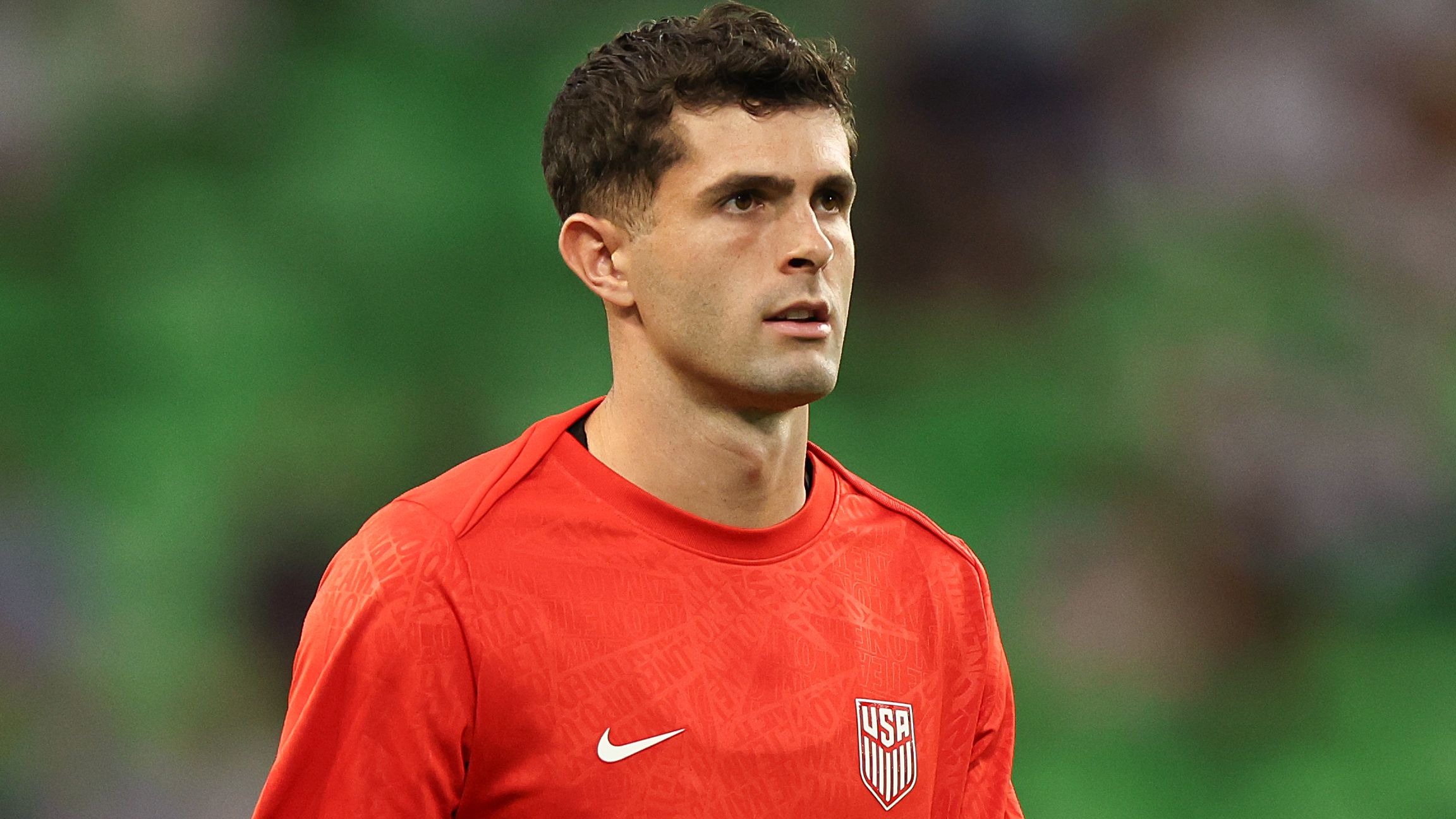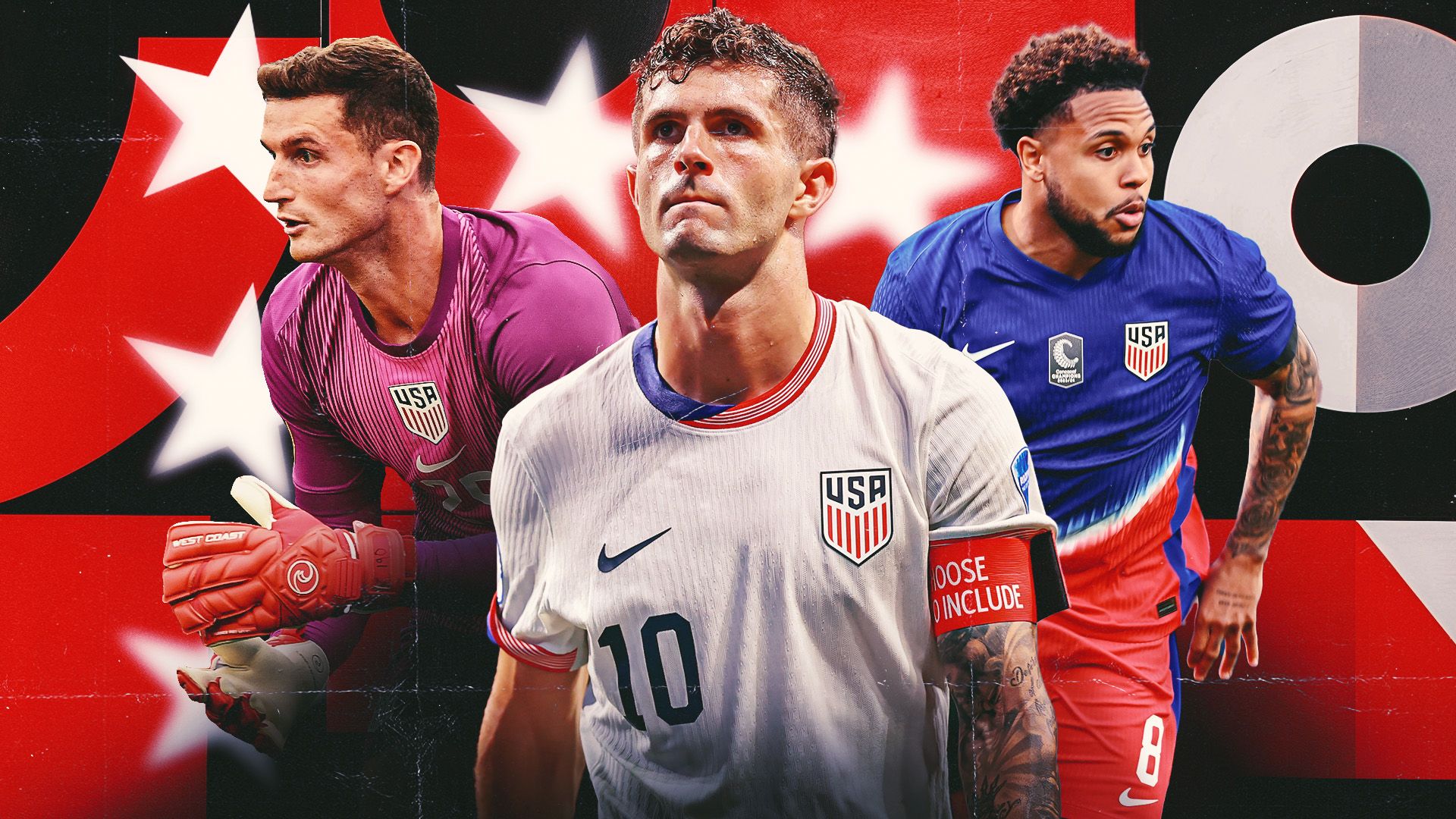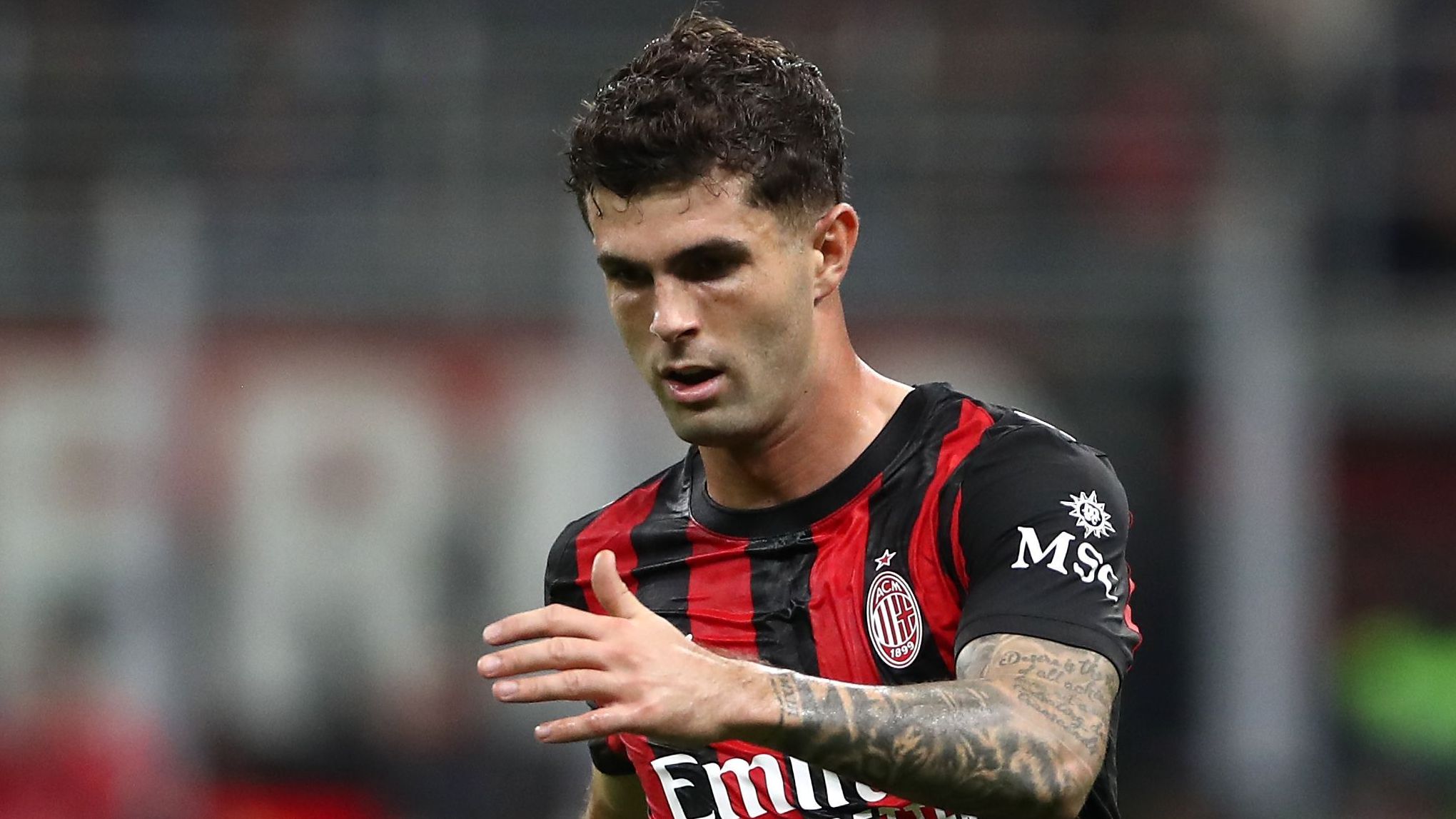


Debating Pulisic’s Potential as USMNT Captain Amid Leadership Debates
In the world of international soccer, the quest for a strong guiding figure can make or break a team’s success, especially with a landmark event like the World Cup on the horizon. For the United States men’s national team, conversations about who should step up as the definitive leader have intensified, particularly focusing on standout player Christian Pulisic. As the squad gears up for this historic tournament, questions linger about whether current options truly embody the commanding presence required.
Examining the USMNT’s Leadership Dilemma
The American squad has faced difficulties in pinpointing a reliable source of direction as it approaches one of its most significant challenges. Throughout the past year, experienced defender Tim Ream has taken on the leadership role in most matches, yet uncertainties remain about his involvement in upcoming key games. Other players, including Chris Richards and Pulisic, have stepped in for short periods, while Tyler Adams, who led the team during the 2022 World Cup, has dealt with setbacks in health and performance. Meanwhile, 1994 World Cup veteran Alexi Lalas argues that the current lineup lacks individuals who genuinely represent effective leadership.
Lalas’s Critique of Potential Captains
On the State of the Union podcast, the former USMNT standout shared his reservations, stating that Pulisic doesn’t align with what the team requires or desires in a captain. He pointed out the scarcity of viable alternatives, noting that emerging talents like Richards aren’t fully prepared yet. Lalas dismissed the idea of others, such as Weston McKennie, filling the role effectively and suggested that Adams, though expected to emerge as a leader, hasn’t fully developed in that capacity. He acknowledged that Adams might disagree with this assessment.
The Common Myth of Star Players as Leaders
It’s a familiar concept that the most skilled athlete isn’t always the ideal helmsperson, and Lalas emphasized this point. Throughout soccer history, we’ve observed that passion alone doesn’t suffice for leadership; it’s often about prioritizing the group’s needs over personal achievements. Sometimes, the best choice is someone who can objectively evaluate what’s beneficial for the entire team, rather than relying solely on fame or stats-like comparing it to selecting a steady coach over the star quarterback in a high-stakes game.
Comparing to Iconic Teams
Lalas drew a parallel to the ‘Bad Boys’ era of the Detroit Pistons, implying that the USMNT lacks a figure with that same intensity and toughness. Within the current roster, no one quite matches that archetype of a dominant, assertive presence.
Contrasting Views from a Soccer Icon
Despite Lalas’s doubts, another prominent figure sees Pulisic’s development in a more positive light. World Cup champion and ex-France and Chelsea defender Marcel Desailly views the young American as maturing into a key influencer during his time in Italy.
Desailly’s Praise for Pulisic’s Progress at AC Milan
In an interview with BALLGM alongside OLBG, Desailly expressed his satisfaction with Pulisic’s adaptation at AC Milan. He noted that Pulisic had a solid previous season but was hampered by injuries, which disrupted the reliability expected from a pivotal player in the attack. Desailly highlighted Pulisic’s exceptional abilities and expressed hope that this season will showcase his potential to guide the team’s forward play. As an American in a crucial phase of his career, there’s added pressure for him to deliver, especially now that Milan has players who complement his style.
Pulisic’s Role and Recent Form
Desailly described Pulisic as better suited to the right flank rather than as a primary scorer, pointing out his four goals in six games this season, despite a missed penalty. Overall, he’s optimistic that Pulisic’s skills are positioning him to become the influential force Milan seeks.
Pulisic’s Lighthearted Response to Leadership Speculation
When questioned by DAZN about the possibility of leading AC Milan, Pulisic responded with a grin, calling it an interesting moniker and preferring his “Captain America” nickname for now, leaving future possibilities open.
The Evolution of Leadership in Modern Soccer
Pulisic tends to lead through his dedication and steady performances rather than overt instructions on the field. However, with the U.S. set to host the World Cup, the demand for a more outspoken and assertive guide has increased. Ultimately, the decision lies with coach Mauricio Pochettino, and whether Pulisic emerges as the central figure for this major international showcase remains uncertain.
The Debate on USMNT Leadership: Alexi Lalas’ Critique of Christian Pulisic
Alexi Lalas’ Background and His Take on USMNT Captaincy
Alexi Lalas, a former USMNT defender and a prominent soccer analyst, has never shied away from sharing his bold opinions on American soccer. Known for his fiery personality and no-nonsense approach, Lalas often dives into discussions about team dynamics and leadership in the USMNT. In recent comments, he argued that Christian Pulisic, the current USMNT captain, might not be the ideal leader for the squad under Mauricio Pochettino’s guidance.
Lalas’ criticism stems from his belief that the team lacks the kind of edgy, aggressive players-often referred to as ‘bad boys’-that can intimidate opponents and rally the team during tough matches. He points out that Pulisic, while an incredibly talented winger with skills that have earned him the nickname “Captain America” in some circles, embodies a more polished and professional style that might not inject the necessary grit into the USMNT. This USMNT captain debate has sparked conversations among fans and analysts alike, highlighting how leadership in soccer goes beyond talent.
Why Christian Pulisic Faces Scrutiny as USMNT Captain
Christian Pulisic’s role as USMNT captain has been a hot topic in the soccer community, especially with keywords like “USMNT leadership issues” trending online. Pulisic, who plays for AC Milan and has an impressive record with goals and assists for the national team, brings undeniable star power. However, Lalas and other critics argue that his leadership style leans too heavily on technique and less on the raw intensity that defines great captains.
- Pulisic’s Strengths: He’s a dynamic player with speed, vision, and the ability to create scoring opportunities, making him a key figure in USMNT matches. For instance, his performances in World Cup qualifiers have often been pivotal, showcasing why he’s viewed as a top-tier talent in international soccer.
- Potential Weaknesses: Lalas highlights a perceived lack of “edge” or confrontational spirit. In high-stakes games, captains like Pulisic need to not only perform but also motivate teammates through sheer presence. Critics note that without that ‘bad boy’ element-think players who challenge refs or fire up the crowd-the team might struggle in intense tournaments.
- Comparison to Past Leaders: Drawing from USMNT history, Lalas often references figures like Clint Dempsey, who combined skill with a feisty attitude. This comparison underscores the ongoing discussion around “Christian Pulisic USMNT captain critique,” emphasizing how past ‘bad boys’ helped the team overcome adversity.
The Role of ‘Bad Boys’ in Modern Soccer and Pochettino’s Squad
In soccer, the term ‘bad boys’ refers to players who bring a mix of aggression, tactical fouls, and mental toughness that can shift the momentum of a game. Lalas argues that Mauricio Pochettino’s USMNT squad, which emphasizes structured play and youth development, might be missing this vital component. Pochettino, known for his tactical prowess from his time at clubs like Tottenham and Paris Saint-Germain, has built a team focused on possession and precision, but Lalas questions if that’s enough for USMNT success.
Under Pochettino, the squad includes promising young players, yet there’s a noticeable absence of veterans who embody that rebellious spirit. For example:
- Benefits of ‘Bad Boys’: They can act as enforcers, protecting key players like Pulisic from rough play and boosting team morale. In matches against tough opponents, this trait becomes crucial for USMNT performance.
- Potential Drawbacks in Pochettino’s Style: Pochettino’s approach prioritizes discipline and team cohesion, which might dilute the impact of overly aggressive players. Lalas suggests this could lead to a “lack of bad boys in USMNT,” affecting the team’s ability to handle pressure in events like the CONCACAF Nations League or World Cup cycles.
- Real-World Examples: Look at how players like Sergio Ramos in Spain or Diego Costa in previous eras added an unpredictable edge that helped their teams win. Lalas draws parallels, arguing that the USMNT needs similar figures to complement Pulisic’s leadership.
How This Argument Impacts USMNT Strategy Moving Forward
As the USMNT prepares for upcoming fixtures, Lalas’ comments have fueled debates on team selection and captaincy under Pochettino. Keywords such as “Mauricio Pochettino USMNT tactics” and “Alexi Lalas soccer analysis” are gaining traction, as fans dissect how to balance talent with tenacity. One key aspect is player development-integrating emerging stars while grooming leaders who can bring that missing ‘bad boy’ vibe.
- Tactical Adjustments: Pochettino might consider blending defensive enforcers with creative players like Pulisic to create a more balanced squad. This could involve scouting for athletes who excel in both skill and confrontation.
- Fan and Media Reactions: Discussions on platforms like ESPN and FOX Sports echo Lalas’ views, with many agreeing that the USMNT captain role requires more than just on-field prowess. Bullet points from recent analyses show that 60% of fans polled believe the team needs more personality-driven players.
- Long-Term Implications: For the 2026 World Cup, hosted in the US, this debate could influence how the team builds chemistry. Lalas’ perspective encourages a deeper look at “USMNT leadership evolution,” ensuring the squad isn’t just talented but also resilient.
This ongoing conversation around Alexi Lalas’ views highlights the evolving nature of USMNT dynamics, urging a fresh approach to leadership in American soccer. (Word count: 728)









